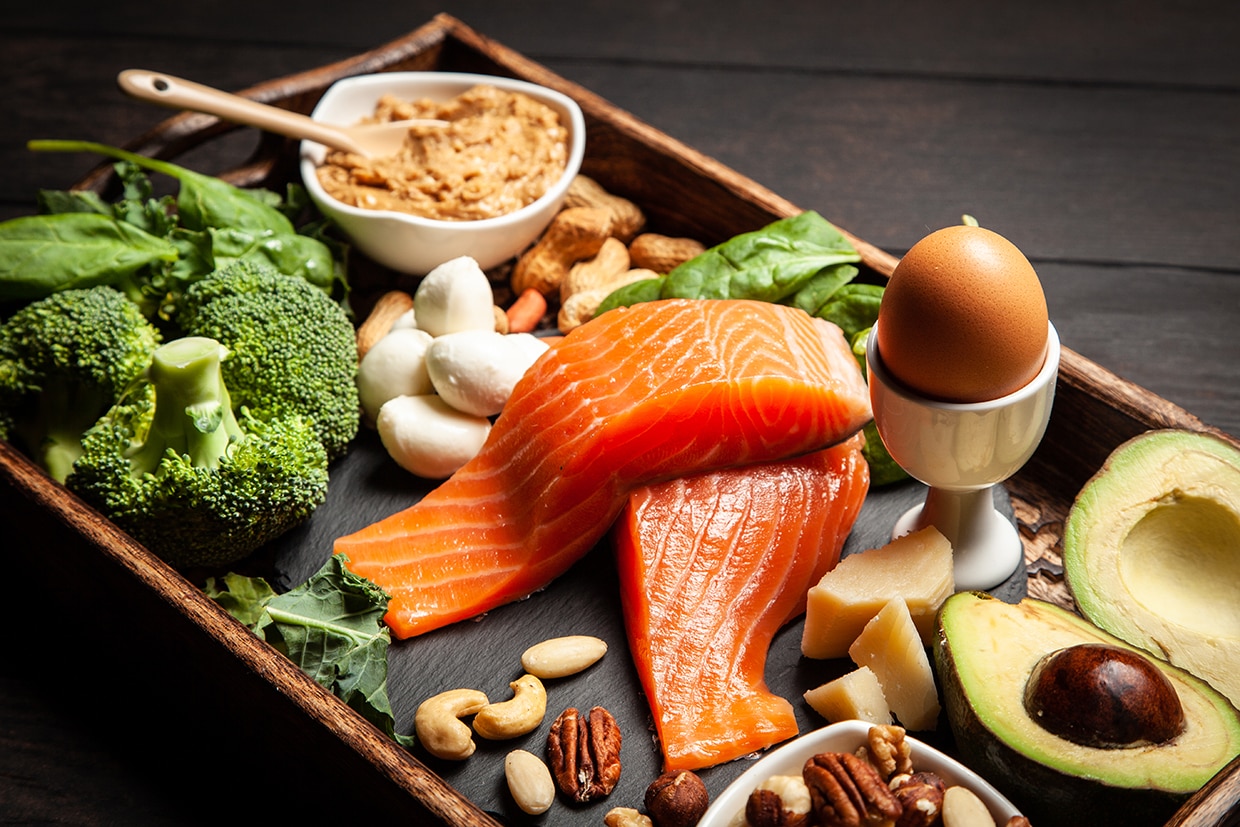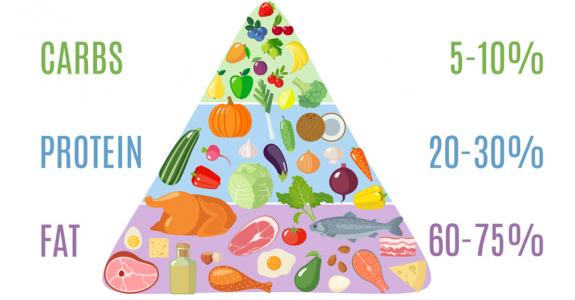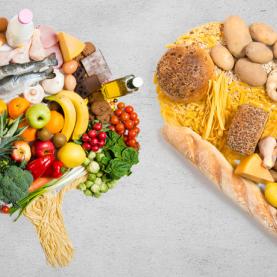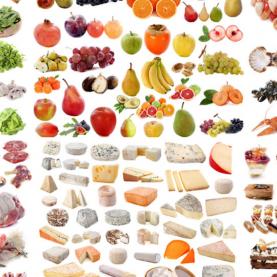The keto diet
The craze for the ketogenic diet has now gone global. However, its credo “sugar is dead, long live fat” seems partly counterintuitive.
Egg, avocado, oily fish and nuts… The keto diet is far from light! ©Shutterstock/George Dolgikh
The ketogenic diet, aka the keto or LCHF (low-carb, high-fat) diet, is all the rage, overtaking the Paleo diet and veganism in Google searches. Resembling a western cultural movement, adopted by a host of celebrities, it even has its own festival in Quebec.
Eat fat to lose weight?
It would appear that eating fat is a good way to lose weight. Is that really possible? Yes, but only if we cut out another foodstuff to which we are particularly partial: sugar. That means sugar in all forms, whether cereals, starchy food, or fruit, not to mention desserts and sugary drinks, which in any case should be consumed in moderation. The principle behind LCHF diets is simple: Unlike proteins and fats, we do not actually need carbohydrates in our diet, as they are not essential nutrients.1
An upside-down pyramid and the ‘macronutrient war’
LCHF diets replace the carbohydrates on our plates with lipids, thereby turning the food pyramid that has dominated nutritional guidelines in industrialised countries for over 50 years upside down. An LCHF meal generally comprises 70% fats, 25% proteins and 5% carbohydrates. The keto diet bears many similarities to the Atkins diet, popular in the 1970s.
What if this collective keto craze was not so much about pardoning fats, but rather questioning the way we consume sugar? ‘Eating keto’ also means taking sides in the ‘macronutrient war’4 which pitches ‘anti-fats’ against ‘anti-sugars’. Between beliefs, anecdotes and a plethora of hyperbolic testimonials on social media, it is becoming more and more difficult to tell fact from fiction. For decades, even scientists have had divided opinions. On one hand, we have Dr Ancel Keys and his Seven Countries Study (1958) on the link between high levels of cholesterol, diet and cardiovascular disease. Despite selection biases, his results blame fat consumption.5 On the other, there is Professor John Yudkin, whose book Pure, White and Deadly (1972) points the finger at sugar consumption. However, due to a lack of institutional support, this theory fell by the wayside. The fear of fat reached a peak in the early 1990s, when studies linked dietary fat to an increased risk of certain forms of cancer.6 On the basis of a host of diverse and conclusive research studies in nutrition, and in the absence of differing results, public health organisations spent decades creating and adjusting models of a balanced diet based on carbohydrates, to which the food industry conformed with low-fat products.
In the face of increasing rates of obesity and cardiovascular disease in the late 1990s, doubts began to resurface. Even more alarming, the average BMI7 has been rising since the 1970s.8 Could sugar be the culprit?9 The situation seems far more complex than that because, for an equal energy value, our bodies behave differently depending on the type of carbohydrates10 consumed. More and more nutritionists and doctors are turning towards LCHF diets to treat people suffering from metabolic disorders such as obesity, high cholesterol, glucose intolerance, insulin resistance and type 2 diabetes, generally with satisfactory results.11
Who is right?
Science does not yet know the long-term effects of LCHF diets on the human body. Such diets are also difficult to stick to for any length of time.12 However, the use of keto diets in medicine is nothing new. They are prescribed to treat some serious health problems, with more or less conclusive results, and often when there is a lack of medication or when it no longer works. This has been the case for patients with drug-resistant epilepsy for about a century now.13 Recent research has produced some interesting possibilities in the treatment of Alzheimer’s,14 which some researchers even refer to as ‘type 3 diabetes’.15 It is important to bear in mind that keto is above all a medical diet, not aiming for weight loss, and that is prescribed on the basis of a risk-benefit assessment.16 It is therefore strongly recommended that people seek medical advice before embarking on the keto adventure in the hope of losing a few extra pounds.












